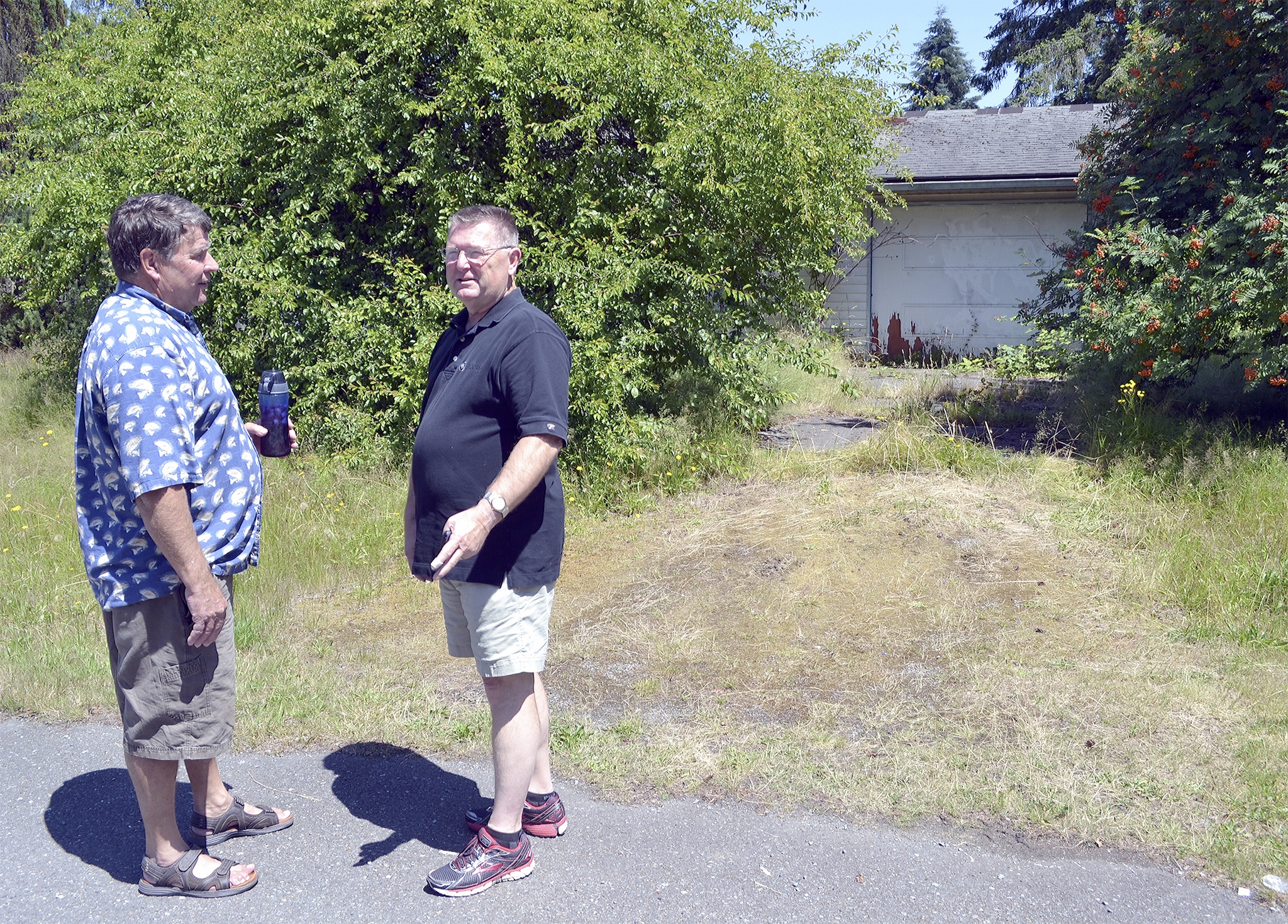MARYSVILLE – Sara Bennett recalled with terror the day her kids had to use baseball bats to keep six rats away that had made it to their backyard deck.
They set up traps because with the kids and animals around they didn’t want to use poison. But the rats still got into their garage and made a nest in a box of family memorabilia, which then had to be thrown away.
“Every time they eat a snack” she worries about rats showing up, said Bennett, who is a neighbor in the Shoultes-area neighborhood of Ron Friesen and Ed Bailey.
Those two, plus three others, were at the City Council meeting this week, encouraging them to pass a law that would not allow people to let their homes and yards get out of control.
The council wants to get it right because it is a private property issue, and it doesn’t want to open itself up to lawsuits. They are battling over the issue of what the “standard” would be for the city needing to step in.
Friesen said it’s like how some people describe pornography. “You know it when you see it,” he said.
Friesen said there already is an abatement law that says the city, after a citation warning, can clean up a derelict property and send the bill to the homeowner. If there is no payment, a lien can be put on the home.
Friesen sympathizes with some of his neighbors, whom he said have “hoarders addiction.” He said when the city does finally do something, it uses the criminal system, which is more expensive than using its abatement process.
“They are not criminals. They have problems,” he said, adding using abatement would be more effective because “losing their stuff is worse than being fined or jailed.”
Friesen added that current city law wouldn’t help Bennett’s situation with her neighbor because the mess is in the back yard. Current law says areas concealed from view from the public street are not part of the code. That’s what Friesen and others have been pushing the council the past few weeks to address.
He said police won’t help.
“They’re into thugs and thieves – not termites,” he said.
Friesen said neighbors have offered many times to help clean up the stuff and haul it away, but they have been denied.
Friesen filed a complaint months ago because of the 100 junk cars and 10 “deplorable” houses in his neighborhood. He said he “snapped” when nothing was done.
His anger showed Monday night. He said he should sue the city for failure to act on something that results in harm. Friesen said law-abiding folks are moving away because crime is up and property values are down in such neighborhoods.
“I’m sick and tired of non-action,” he said.
He’s not the only one.
Bailey, who lives just a few blocks away, has been in Marysville for 40 years. He has four houses right near him that are “derelict.” One has been empty since at least 1993. Another has been empty for five years. And a known drug house also is nearby.
“I feel like a captive,” he said.
He would like to see the city enforce its law regarding keeping front yards in shape. The grass at one house is 2-feet tall.
Crime is rampant, he said, and of the once-proud neighborhood he added, “It’s no fun to live in the neighborhood any more.”
Ralph Wilson, who lives near Kellogg-Marsh Elementary School, said public nuisance laws should not just look at how a place looks, but also the smell and sound. He said rundown slums have the highest crime rate, and that he would be willing to be part of a citizen’s committee that looks deeper into the issue and advises the council.
Toni Carraseo, who lives in the Cedarcrest Golf Course vicinity, said her neighborhood has lost 10 people, “many wonderful neighbors,” because of one person doing illegal activities. She said nobody will listen, that the system doesn’t work, and she is scared of retaliation.
“I’m a good citizen. This is my home and my country,” she said. “I give up.”
Charles Smith, who lives in a nearby neighborhood, has actually been working with the city because of a car being allowed to park at his house for 2 1/2 years because of its “handicapped” sticker.
Later that meeting, the council passed a law that would make it illegal for any car to be parked in such a way for more than three days.
“That’s a good start,” Smith said.
Council members said they heard the discontent from the residents.
Michael Stephens said they would focus on the “junk ordinance” because of its importance.
Kamille Norton added, “It’s the will of the council to help you.”
And Jeff Vaughan said, “It’s a complicated problem, but unlike the other Washington you will see some movement on this.”



